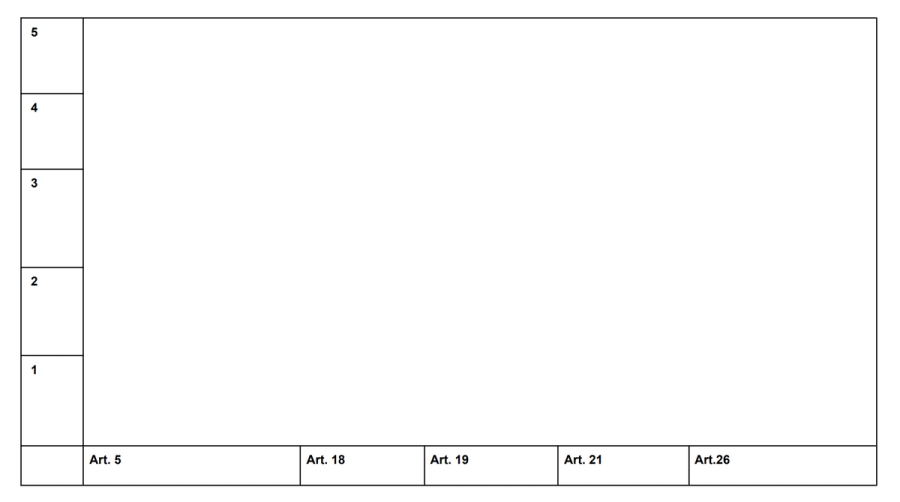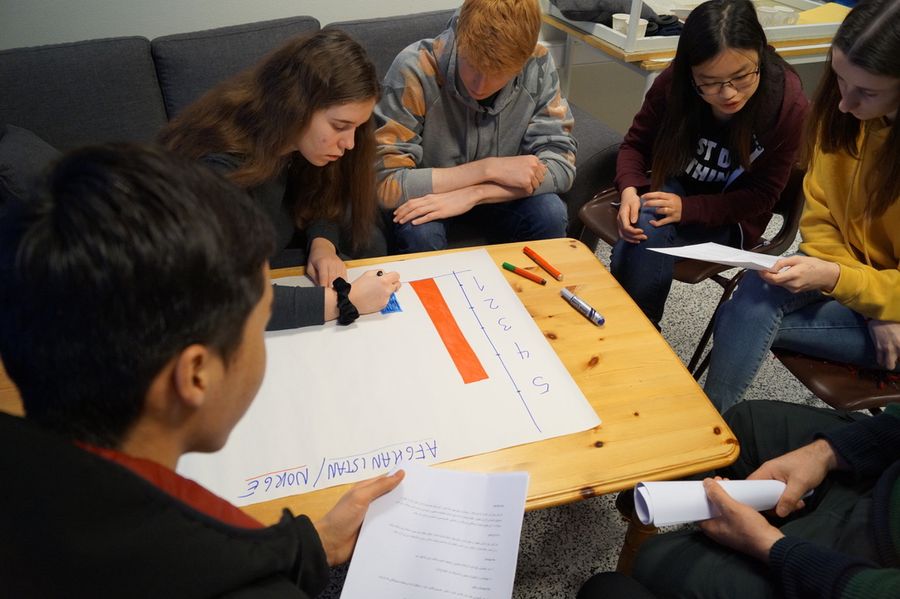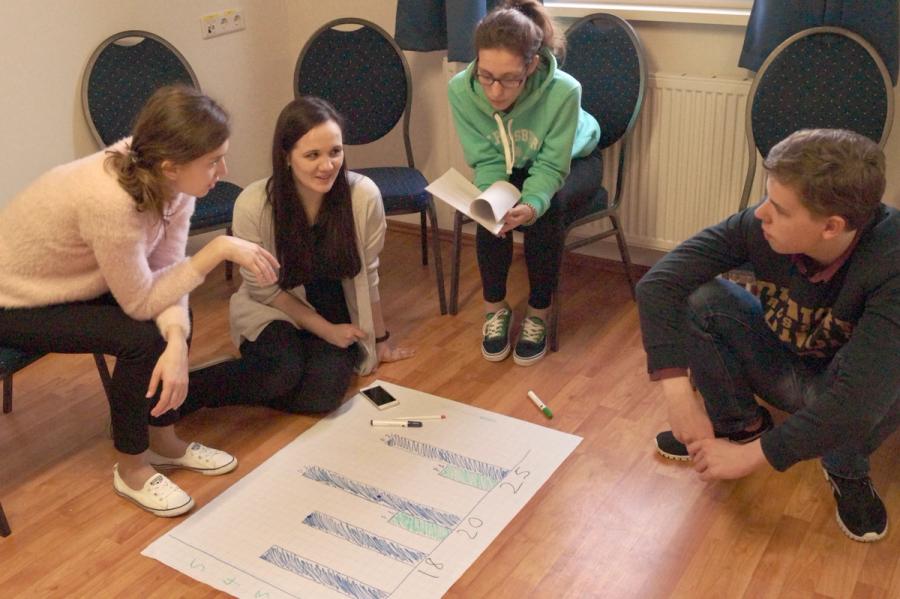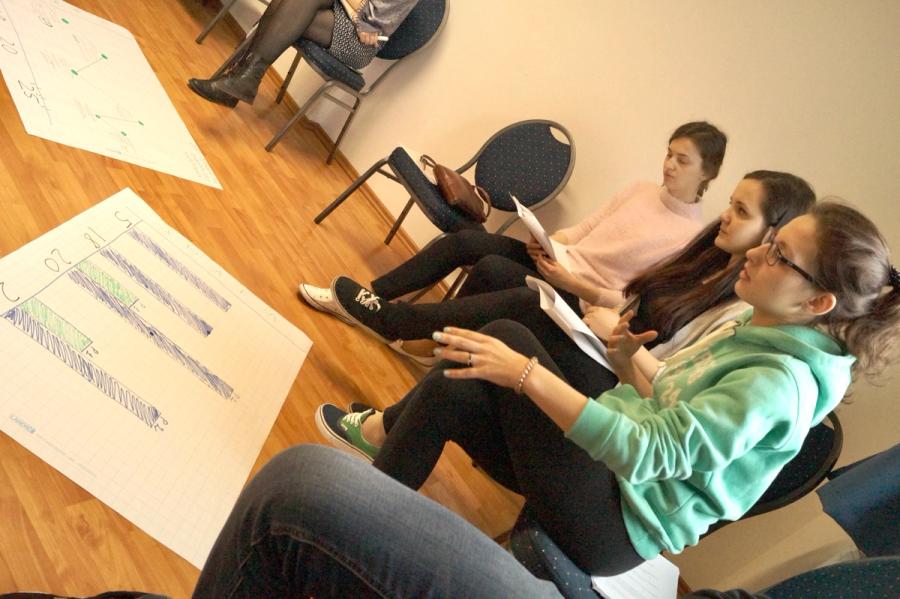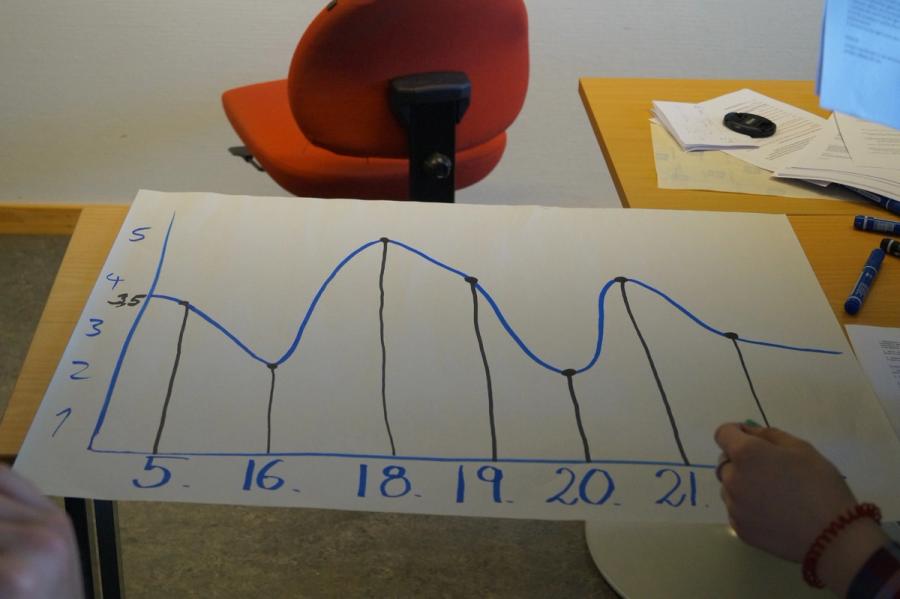Foto: MRA
Activity:
Analysing the human rights situation
The participants are “experts” on their own country. Now they are to apply their knowledge to analyse the situation in their country from a human rights perspective.
Photo: MRA
Quick facts

Human rights

Youth school • High school • Adult education • Organizations and others

Ca 1.5 hours

Materials: A marker and a flip chart for each group. A copy of the Universal Declaration for each participant.
Activity goals
- Raise awareness of the challenges and positive developments when human rights are implemented.

The activity is a further development of the exercise "Let us analyze the human rights situation" from the book "Build bridges, not walls" by Lillian Hjorth and Enver Djuliman. This is an activity that MRA often uses on joint courses for unaccompanied minor asylum seekers and school students, as well as courses for teachers in Norway and internationally.
Preparations
- We recommend that the participants have basic knowledge about human rights before undertaking this group work.
Instructions
- Divide the participants into groups of 3-5 persons. Give each group a marker and a flip chart that the facilitator has prepared (e.g. below). The following articles from the Universal Declaration of Human Rights are recommended for the analyses: 4, 5, 12, 14, 16, 17, 18, 19, 20, 21, 24, 26.
- Give each participant (or group) a copy of the Universal Declaration of Human Rights.
- Assign each group four or five articles in the Declaration of Human Rights. for analysis. The task is to evaluate how the particular article/right is respected and practised in the country. The participants must analyse the real situation, not how the human right in question is protected in the national legislation (often the legislation itself is good). Each group is to discuss the situation regarding the particular right and award marks according to the following criteria on a scale from 5 (best) to 1 (worst):
- Mark 5: The situation regarding this right is perfect. Everyone enjoys this right. There are no violations
- Mark 4: The situation regarding this right is very good in the society. Not many violations
- Mark 3: The situation regarding this right is okay, but there are systematic problems that need to be dealt with
- Mark 2: The situation regarding this right is bad. There are many violations
- Mark 1: The situation is terrible. Only those in power, and nobody else, enjoy this right
- When the groups have finished their analysis, the participants present their results and explain their marks to the others in the plenary session. The facilitator should also use the opportunity to present facts.
Reflection
- Did you ever think about the human rights’ situation in your country?
- Is the human rights situation better or worse than you have thought before?
- Who has the main responsibility for fulfillment of human rights?
- What can we do in order to make the situation of human rights in our country better?
Debriefing
Even if the group work has shown that there can be major human rights challenges in the country (/all the countries), it is important to underline that if we see the situation in a historical perspective, there has been a positive development, both worldwide and in our own societies. The situation further back in time is often much worse than today (except in countries where there is war and conflict). This shows us that positive change is possible and that we should all work to develop our societies.
Tips to the facilitator
- Groups´ presentations are not a competition. On the contrary, the aim is to listen to different views and arguments to gain as much information on the human rights situation as possible.
- The Universal Declaration for Human Rights is very suitable for this group work. It is, however, also possible to use the European Convention on Human rights (1950).
- Give the participants a research task: What does research tell us about the real situation with this human right challenge in our country? Can concrete examples be found? What do reports from civil society institutions say? How do the press/the media cover this particular human right?
Resources
- Human Rights and Human Dignity. Simple idea, but hard to realize. Hjorth, Lillian (2015), Menneskerettigheter og aktivisme, Aktive Fredsforlag.
- Film: Universal Declaration of Human Rights (UN High Commissioner for Human Rights, 2017) (6 min)


